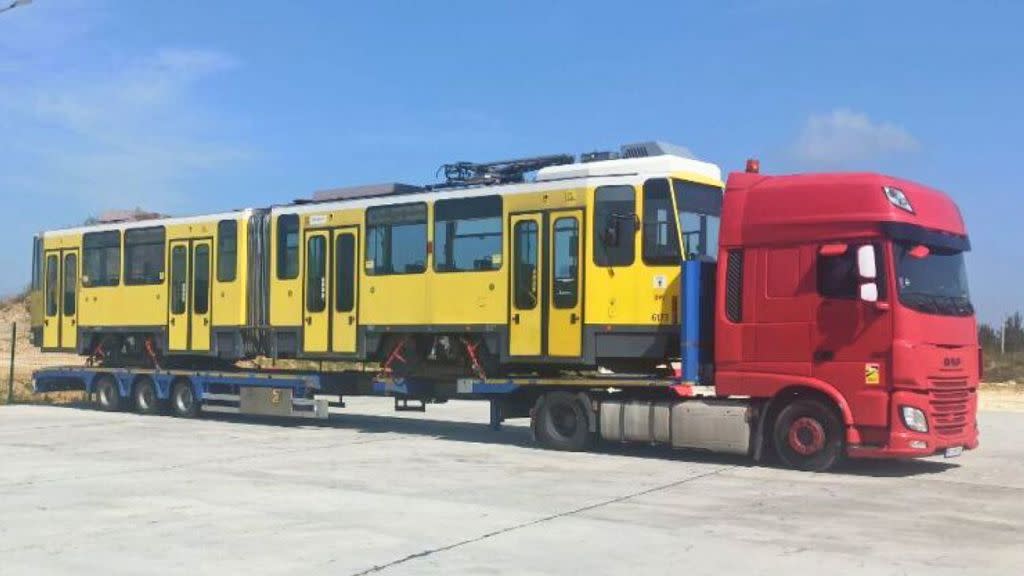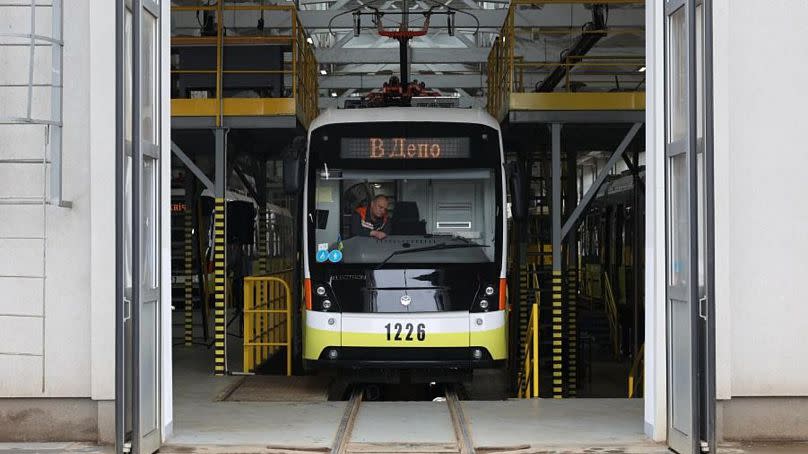Trams from Switzerland and Germany are helping to decarbonise Ukraine’s public transport

Switzerland and Germany are sending more than 100 used trams to Ukraine to help the embattled country improve its public transport.
Tens of thousands of people have moved to the western city of Lviv since Russia’s invasion in 2022, placing more pressure on its transport network.
Many of the new arrivals have been disabled by the war, and so have additional needs that Switzerland is helping to meet with accessible low-floor trams.
Switzerland’s State Secretariat for Economic Affairs (SECO), is also sending dozens of the trams to Vinnytsia in central Ukraine.
Why is Europe experiencing such extremes in its weather and what can be done?
Italy, Germany, France: The EU countries way off track from meeting 2030 emissions targets
As well as giving a much-needed boost to mobility, the donations also have a positive climate impact - helping to decarbonise the cities’ public transport systems. Despite being older models, the Vevey manufactured trams are less energy-intensive than Lviv’s Communist-era fleet.
Why is Switzerland sending old trams to Ukraine?
The donations are part of a broader foreign aid flow from the Alpine country, which is funding other sustainable urban development projects in Ukraine.
Switzerland has donated hundreds of old trams to other Eastern European countries in the last 20 years too, including Romania and Serbia. But, as news site Swiss.info reports, this is its first wartime donation.
In total, it is sending 11 decommissioned low-floor trams to Lviv, and 67 high-floor ones to Vinnytsia.
Lviv has also recently received a batch of donated trams from Berlin, which are now in the process of being re-fitted to the width of the city’s gauge, and kitted out to work with e-tickets.
“It is important that these cars are energy-saving,” notes Lvivelectrotrans (LET), which operates Lviv’s trams and trolleybuses. “In particular, they consume 2-2.5 times less electricity than existing trams. This will allow you to significantly save on electricity bills.”

On top of the Swiss and German donations, Lviv received a €17.4 million loan from the European Investment Bank to purchase 10 new low-floor trams earlier this year.
“The city’s residents and visitors can now enjoy a new, inclusive and eco-friendly means of public transportation,” Henrik Huitfeldt, head of the Local and Human Development Section at the EU Delegation to Ukraine, said in April.
Europe’s richest country made public transport free: Could other countries do the same?
‘Solar Marshall Plan’: Can Ukraine become the world’s first post-war country rebuilt on renewables?
How are the Ukrainian cities' transport needs changing?
There is still a demand for more trams in Lviv and other western Ukrainian cities, as the country’s internally displaced population grows.
But the war is presenting more than just capacity challenges. Many spare parts were made in the wartorn east of the country, where skilled transport workers have also departed for the front line.
As such, SECO’s assistance includes four weeks of training for Ukrainian staff, and covers the cost of spare parts as well as engineering adaptations.
Lviv is also contending with emergency power outages, which can cause trolleybuses and trams to be rerouted if the problem persists - though substations act as back-ups.
War is reshaping the network in other ways, too. The Swiss trams from Bern will run on a new extended line to the new national rehabilitation centre, Unbroken, which seeks to treat up to 10,000 civilians and soldiers a year.
Outside Lychakiv Military Cemetery, a new accessible public transport stop has just been approved so people can more easily pay their respects to the war’s many victims.

